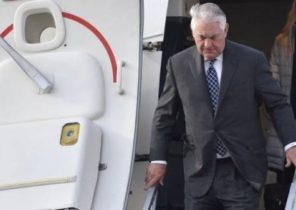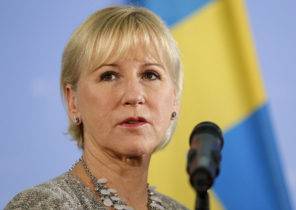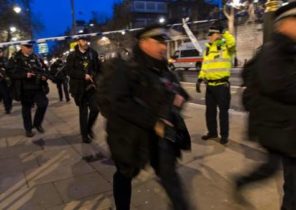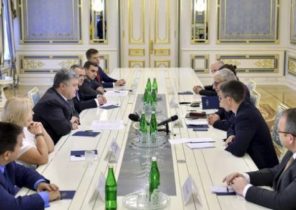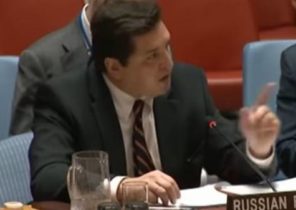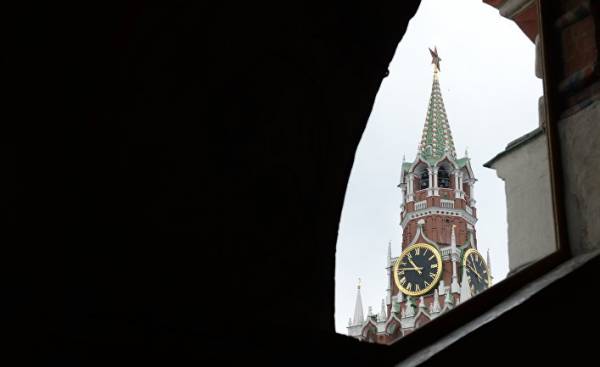
Alexei Navalny started from where he stopped. The Russian opposition, which on Monday, April 10, was released after 15 days he spent in jail for organizing mass anti-government protests that took place in March, hopes that the momentum from these protests can enhance his chances for participation in the presidential elections of 2018.
However representatives of the Kremlin have very different point of view on the possibility that Mr. Navalny will be able to persuade the normally apathetic electorate, and the likelihood of a strong enough candidate who could challenge the power of Vladimir Putin. “The threat comes not from the Bulk but from the inside,” says one ally of the President.
17 years after the arrival of Mr. Putin to power, the authoritarian system he has built, is showing signs of internal cracks. No one expects that the ambitions of Mr. Navalny may somehow prevent Mr. Putin to be reelected for a new term. However, the uncertainty in the question of what will happen next, promotes the growth ambitions and the struggle between influential persons inside the Kremlin and throughout Russia.
Mr. Putin remains the ultimate arbiter of Russian politics. Attracting to his side various members of the elite, from security services to business, as well as representatives of various sections of the political spectrum, from the nationalists to the social Democrats, this is still a popular leader — his approval rating is still above 80% — managed to prevent the emergence of strong enough opponents.
By the end of next six-year period, Mr. Putin is already 71 years old, but so far no succession plan no.
“Everything is stable, because everyone understands that it will govern for six years, and that he will win, says a former senior official closely associated with the property. — However, this system is both unstable, because everything depends on him.”
Someone who is familiar with Mr. Putin, said that either the President will bring up his successor, or he did, as did Boris Yeltsin, then there will be to test potential successors, appointing them Prime Ministers — it was Mr. Yeltsin appointed Mr. Putin Prime Minister in 1999.
Prime Minister Dmitry Medvedev for many years was a staunch ally of Mr. Putin, and if you believe the rumors, the President promised him that he could stay in office until 2018. However, the position of Prime Minister now looks extremely shaky. Mr. Navalny has managed to convince people to come out to protest against the government through his Foundation prepared a video detailing about dishonestly acquired wealth, Mr. Medvedev.
The Prime Minister denies all charges, but confined attention to it “greatly increases the likelihood that Medvedev would have to leave,” says Tatiana Stanovaya, political analyst at the Moscow Center for political technologies.
Sergei Kiriyenko, who last year Mr. Putin appointed his chief of staff, and the young economy Minister Maxim Oreshkin, whose predecessor was detained in November on charges of corruption, sometimes referred to as a possible successor, Mr. Medvedev.
But Mr. Putin is conducting a wide search. Over the past two years he changed a few tens of Kremlin advisers, Cabinet members, officials of the security structures and regional leaders. In place of political heavyweights came to the young people who are obliged to Mr. Putin for their careers. “Those who show their loyalty and efficiency, can be in the final list of possible successors, said the former senior official. It’s a long process of verification.”
One consequence was a surge of internal struggle between the representatives of the regime. And some members of the political elite promoting their own interests very strongly.
After oil prices fell and the recession in Russia has led to a reduction of budget revenues, regional governments have become less obedient. In January, the Governor of economically successful Tatarstan and the Kaluga region have acted with criticism of the Federal government for what it has allocated too many resources to poorer regions.
One of the most extreme examples of tensions around the close of Mr. Putin is the situation in Chechnya. In this Republic talk about the sale of the local branch of Rosneft, the regional government has quarreled Igor Sechin, the quarrelsome head of the state oil company, with the militant leader of Chechnya Ramzan Kadyrov.
Mr. Kadyrov refused to pay the company the price on which insisted “Rosneft”. “He’s a pretty terrible person, but Igor is in this is not inferior to him, said one source knowledgeable about the course of the negotiations. — Igor Ivanovich — not one of those who can scare words g-on Kadyrov”.
Another source close to Rosneft noted that the clash was so serious that even had the need to investigate and find out whether the Chechens have any relation to the terrorist attack in the subway of Saint Petersburg, which took place on 3 April in which 14 people died.
Meanwhile, Vyacheslav Volodin, a former adviser to the Kremlin, which last year became the speaker of the Duma, trying to adjust the lower house of Parliament against the Kremlin. Mr. Volodin, who is considered a potential presidential candidate in future elections, is also trying to strengthen its positions in the Duma, seizing control over the drafting of legislation.
Pro-Kremlin opposition party is also trying to strengthen its position. The Communist party threatened to leave the hall during the annual government report Mr. Medvedev, if the Prime Minister does not clarify the situation with the allegations of corruption.
In itself, this is a reflection of how strengthened the position of Mr. Navalny. According to the survey “Levada-center”, for the past month the level of public recognition of Mr. Navalny rose 8% to 55% is 20% higher compared to the period when he led street protests in Moscow in 2012. Among those who know the name Mr. Navalny, 18% say they would vote for him — last month, that figure was 10%.
But, according to Ms. Deadlift, significant political changes will happen very soon. “They happen only when people will see the obvious split within the elite,” she explained.
In 2012, Alexei Kudrin, economic adviser to Mr. Putin and former Finance Minister, appeared at rallies, which was organized by Mr. Navalny and some members of the business elite supported the opposition. The government managed to cope with the protest movement, and some activists even went to jail.
Today, the willingness of the people to protest and the position of Mr. Navalny may be too weak to convince the members of the political elite of the need to support them. Mrs. Stanovaya said: “Must pass a lot of time, during which the discontent will gradually accumulate that this happened again”.
